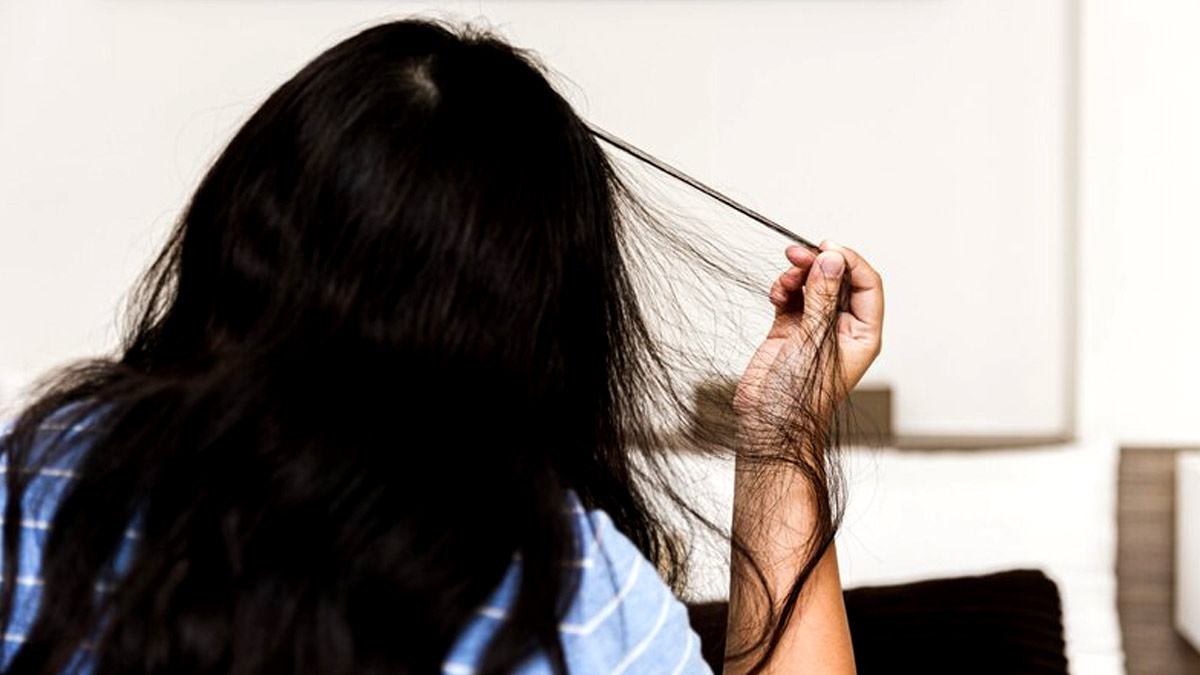Can’t Stop Biting Your Nails? Psychiatrist Shares Causes and Treatment of Body Repetitive Behaviours


Body repetitive behaviours, such as nail biting and hair pulling, are common habits that many people engage in unconsciously. These actions, often rooted in psychological or emotional triggers, can have a significant impact on one’s physical and mental well-being.
As per a study by Iranian researchers at the Hafez Hospital, emotional and behavioural problems were found to be more common in children with nail-biting habits, and social behaviour was found to be weaker. The study hypothesised that practices such as nail biting or hair pulling allow individuals to relieve their anxiety, loneliness, and deprivation of feeling safe and loved.
Understanding Body Repetitive Behaviors: Causes and Triggers

Body repetitive behaviours refer to actions that individuals engage in repeatedly and compulsively, often without being fully aware of them. In a conversation with the team of OnlyMyHealth, Dr Rashmi Satpute, Consultant Psychiatrist, Manipal Hospital, Baner, listed the causes that trigger such compulsive behaviours.
Also Read: 4 Alarming Causes & Treatment Of Nail Biting
- Stress and Anxiety: Stressful situations or emotional turmoil can trigger body repetitive behaviours as a coping mechanism. These actions offer temporary relief from overwhelming feelings and a sense of relief and control during mental turmoil.
- Perfectionism: Individuals with perfectionistic tendencies might resort to these behaviours as a way to alleviate stress caused by high standards and constant self-criticism.
- Boredom: Monotonous or unstimulating situations can lead to these behaviours, offering a distraction from tedium. Additionally, a hyperactive mind might feel restless unless all senses are fully occupied.
- Sensory Gratification: Nail biting and hair pulling can provide sensory satisfaction, often due to the texture or sensation created.
- Mental Health Issues: Body repetitive behaviours can also be an alarming symptom of disorders such as obsessive-compulsive disorder (OCD). When these habits become a pattern that is so disruptive that it starts affecting your day-to-day life, then it is probably a sign of a bigger health issue.
Treatment Strategies
 Dr Satpute informed, “To treat your compulsive habits, firstly you have to pay attention to the history of the habit, what is its frequency, and the triggers which compel you to indulge. Usually, we see such habits in people who are introverts, Type-C personalities, people with OCD, or people who are controlling.”
Dr Satpute informed, “To treat your compulsive habits, firstly you have to pay attention to the history of the habit, what is its frequency, and the triggers which compel you to indulge. Usually, we see such habits in people who are introverts, Type-C personalities, people with OCD, or people who are controlling.”
To help individuals suffering from such repetitive behaviours, she listed a set of healthy coping strategies that can help break such habits:
Also Read: How Nail Biting Can Impact Your Teeth
- Awareness: The first step towards overcoming these behaviours is recognising when they occur. Keeping a journal or setting reminders can help increase self-awareness. Take special note of your mood, time of the day, current activity, and any other common triggers you may notice when you start biting your nails or pulling your hair.
- Replacement Behaviours: Substitute repetitive actions with healthier alternatives. For instance, use a stress ball or fidget toy to keep your hands occupied.
- Keep Stimulants at Bay: To discourage yourself from such habits, keep your nails short and your hair tied in a bun. You can also cut your hair short till you lose the habit of pulling out hair. Applying something bad tasting to your nails, or oil to your hair could prove helpful.
- Mindfulness and Relaxation Techniques: Practices like meditation, deep breathing, and yoga can help manage stress and anxiety, reducing the need for these behaviours.
- Professional Help: If the behaviours are severe and significantly impacting daily life, seeking guidance from a therapist or counsellor with experience in habit disorders is crucial.
Conclusion
Dr Satpute expressed her confidence and offered hope that with the right combination of self-awareness, coping strategies, and professional support, it’s possible to break free from the cycle of these behaviours. However she stressed that body repetitive behaviours like nail biting and hair pulling are more than just habits, they are often signals of underlying psychological and emotional factors. Dr Satpute insisted that individuals must take a long hard look at their compulsive body repetitive behaviours, and must consult a professional to diagnose underlying dangerous mental health issues.
